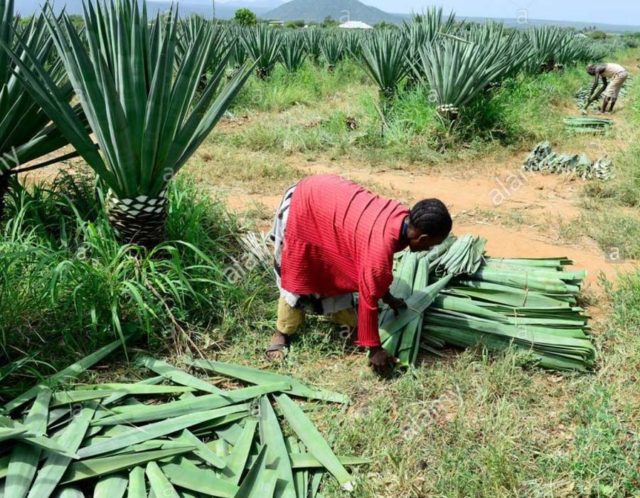
(5 minutes)
· The Tanzania Government has said it is serious on its resolve to revive all sisal plantations around the country through the private sector. This is a complete departure from the earlier stand of plantations being owned and operated by the state agencies
· Return of sisal plantations back to original owners is to correct the socialism-era mistake in which private property was nationalized
· This had resulted in serious mismanagement and eventual decline of the crop.
· Dr. John Pombe Magufuli, is seriously committed to revive sisal plantations in the country
The Tanzania Government has said it is serious on its resolve to revive all sisal plantations around the country through the private sector. This is a complete departure from the earlier stand of plantations being owned and operated by the state agencies.
Tanzania Prime Minister Kassim Majaliwa said in Tanga that the government was going to give back all sisal farmers properties back to the rightful owners, reversing the move followed by the government earlier.
Return of sisal plantations back to original owners is to correct the socialism-era mistake in which private property was nationalized. This had resulted in serious mismanagement and eventual decline of the crop. Dr. John Pombe Magufuli, is seriously committed to revive sisal plantations in the country, the Prime minister said. He also encouraged farmers to take up virgin land for planting the cash crop where it grows.
Traditionally, Tanzania’s sisal products had been exported to the European Union (EU), the Russian Federation, the former Yugoslavia, Japan, India and China. Of late, it also started exporting to Pakistan , Saudi Arabia, Iraq and Iran. Tanzania is also looking at markets in China, Nigeria, Saudi Arabia, Spain, India, Germany, Japan, Kenya, Libya, Uganda, Morocco, Ivory Coast, Zimbabwe and Egypt to up its export outlets.
Increased utilization of sisal is being noticed across the world. The fiber made of sisal pulp is used to produce twine, cordage for hay, packaging, baling, building and many other uses including carpets, wall covering, doormats, car mats, buffing cloth used for polishing of metal and furniture, fine yarn, bag cloth, padding, mattresses and handicrafts. The fiber is also used in the manufacture of industrial polishing, cloth and composites. The pulp made out of the fiber is used for making boxes for packaging. The industry employs some 100,000 people, with a total annual production of 38,506 tons, as compared to one million people at the time of independence in 1961. Tanzania is the world’s second largest sisal producer after Brazil.











